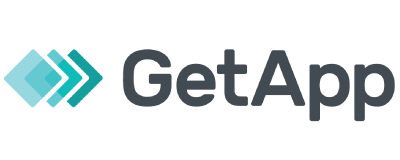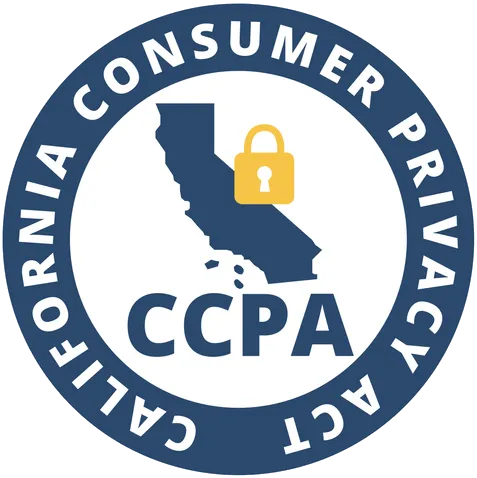If you’re wondering how to start a recruiting agency, this guide provides the essential steps to get you on the right path. Despite recent economic fluctuations, the U.S. staffing industry remains robust, generating approximately $201.7 billion in revenue in 2023, a significant increase from pre-pandemic levels.[1]
While certain sectors, like healthcare, experienced downturns, others, such as engineering and education, saw growth, highlighting the industry's adaptability. The demand for temporary and contract workers continues to rise, with U.S. staffing agencies employing 2.5 million temporary and contract workers during an average week in 2023.[2]
Technological advancements, including AI-driven recruitment tools, are streamlining hiring processes and enhancing efficiency. This evolving landscape presents a prime opportunity for entrepreneurs to establish innovative recruiting agencies that cater to the dynamic needs of today's workforce.
In the sections that follow, we'll delve into the essential steps for launching a successful recruiting agency.
8 Steps on How to Start a Recruitment Agency
1. Figuring Out Your Recruitment Niche
When considering how to start a recruiting agency, identifying your niche is a critical first step to stand out in the market. It’s essential to understand the industry before diving in. Even experienced professionals benefit from staying updated on market trends to make informed decisions. Once you’ve gathered the necessary information, decide which type of recruitment agency to establish, considering your expertise, network, and past experiences with candidates.
Here are free tools and strategies you can use to identify a niche:
Google Trends
What it does:
Shows search trends and comparisons for specific industries or job roles.
How to use:
- Search for terms like “tech recruitment,” “remote jobs,” or specific job roles like “data scientist.”
- Compare terms to see which industries or roles are trending in different regions.
U.S. Bureau of Labor Statistics (BLS)
What it does:
Provides data on industries with job growth, median pay, and demand for specific roles.
How to use:
Use the Industry Data or Occupational Outlook Handbook to search for specific industries or job roles relevant to your recruitment agency’s focus.
What to Look For:
- Employment Trends: Identify job growth or decline in specific industries, which helps predict future demand for talent.
- Salary Data: Check for wage ranges by region and occupation to help guide compensation packages for candidates.
- Unemployment Rates: Analyze national or regional unemployment rates to understand labor market health and demand.
- Job Projections: Review long-term employment projections (e.g., 10-year growth trends) to gauge where hiring needs will increase or decrease.
- Regional Differences: Focus on geographic areas with rising demand in industries you're targeting to discover potential market opportunities.
O*NET Online
What it does:
Offers detailed insights into job roles, including required skills and demand.
How to use:
Browse occupations by industry or demand (projected openings)
Indeed Hiring Lab Data
What it does:
Tracks job market trends
How to use:
Look for industries or job roles with increasing demand but limited competition.
Glassdoor
What it does:
Provides information on job market trends and employee satisfaction in industries.
How to use:
Glassdoor for Employers offers some free insights into salary data, hiring trends, and company reviews, but much of the detailed data and advanced analytics features are behind a paywall. For example, access to specific reports and deeper insights on workplace trends often requires a Glassdoor for Employers account, which is typically used by businesses to enhance their hiring processes.
However, you can still access a wealth of salary information, company reviews, and basic job market trends for free by using the general Glassdoor platform
Google Search Operators
What it does: Helps refine searches for specific recruitment trends.
How to use:
Use queries like:
- "fastest growing industries 2024" site:.gov
- "emerging tech jobs"
- "industries facing talent shortages"
Types of Niche Recruitment Services to Offer
- Executive Recruitment: Specializes in sourcing senior professionals like CXOs and directors, with fees of 25–35% of the candidate’s first-year salary.
- Temporary Recruitment: Fills short-term roles for fluctuating workloads or projects, with fees ranging from 20–75% of compensation.
- Vertical or Niche Recruitment: Targets specific industries or specialized roles, leveraging deep expertise and networks.
- Mass Recruitment: Supports high-volume hiring, streamlining sourcing, assessments, and onboarding with performance-based fees.
- Social Recruitment: Uses social media to source candidates via referrals. Fees typically range from 15–25% of the candidate’s salary.
2. Do Your Market and Competitor Research
Understanding how to start a recruiting agency requires thorough market and competitor research to identify opportunities and challenges. Once you decide on the market and type of recruitment agency you want to establish, assess your principal competitors. Never enter a game without knowing its rules and who you’ll encounter while trying to build your position and land clients.
Here are free tools, methods, and actionable steps to research competitors and conduct a strategic analysis when establishing a recruitment agency:
Google Search Queries:
“site:”
- Search within specific websites. Example:
site:linkedin.com recruitment agencies.
“intitle:”
- Find pages with keywords in the title. Example:
intitle:"[niche] recruitment agency".
“inurl:”
- Find pages with keywords in the URL. Example:
inurl:services [niche] staffing.
“-” (Minus)
- Exclude terms. Example:
"executive recruitment" -site:jobboard.com.
“OR”
- Search multiple terms. Example: "
executive recruitment" OR "senior roles staffing".
LinkedIn:
- Analyze competitor company pages to see client industries, job postings, and employee connections.
- Look at follower engagement to assess their audience reach and activity levels.
Online Reviews (e.g., Glassdoor, Trustpilot):
- Review client and candidate feedback to identify strengths and weaknesses in competitor services.
Recruitment Agency SWOT Analysis
- Assessing your competitors’ strengths and weaknesses helps you identify areas where you can outperform them and uncover market opportunities. Here are some key methods you can use to evaluate:
Free SWOT Analysis Template for Recruitment Agencies
Similarweb (Free Version)
- Navigate to Similarweb.
- Enter a competitor’s domain in the search bar.
- View data on traffic sources, audience demographics, and website performance.
What to look for:
- Traffic Overview: Shows estimated monthly visits, helping you gauge audience size.
- Traffic Sources: Reveals where traffic comes from (e.g., direct, search, social) to identify key channels.
- Audience Interests: Shows what other industries or categories visitors engage with, revealing broader market opportunities.
- Top Pages: Highlights the most visited pages, indicating what content or services attract the most interest.
- Geography: Breaks down traffic by location, helping identify regional market strengths or gaps.
SEMRush (Limited Free Use)
- Use SEMrush's Domain Overview tool to analyze competitors by entering their website URL. This will show their top-performing keywords, organic traffic, backlinks, and paid ads.
What to Look For:
- Organic Keywords: Identify the keywords competitors are ranking for.
- Backlinks: Check the quality and quantity of backlinks to understand their credibility.
- Traffic Trends: Look for rising or falling traffic patterns to gauge growth or decline.
- Paid Ads: Analyze their paid search strategy to see if they are investing in PPC campaigns.
Note: To use SEMrush for competitor analysis, registration is required to access most of the features, including the Domain Overview tool and the detailed insights on organic keywords, backlinks, and paid ads_. SEMrush offers limited access to certain features, such as the_ Domain Overview, but you can only perform a few searches per day without signing up. You won’t get full insights into competitors’ keywords, backlinks, or traffic trends unless you register.
3. Get Your Finances Right
Identify Key Costs
Starting a recruitment agency involves several essential expenses. You’ll need to account for office equipment, digital tools, employee salaries, insurance, marketing costs, and possibly professional services. Additionally, you should factor in recurring expenses for recruitment software, customer relationship management (CRM) systems, and job board subscriptions, which can vary widely depending on the tools you choose to streamline your operations.
Assess Available Resources
Understanding your available financial resources is critical. Take stock of your savings, potential loans, and investments. Consider whether you may need external funding, such as credit loans or state support for small businesses. Creating a detailed budget spreadsheet will help you track your initial startup costs, monthly operational expenses, and projected revenue, giving you a clear view of your financial position.
Explore Financial Options
Once you know how much money you need, explore your financial options. Traditional loans, grants, and government programs, such as those offered by the Small Business Administration (SBA), could provide favorable terms for small businesses. If you choose to seek investors, be prepared to present a well-structured plan showing how the funds will contribute to the growth of your recruitment agency.
Plan for Growth Without Heavy Debt
Avoid taking on too much debt in the early stages of your business. Over-reliance on loans or investors can strain your cash flow and reduce profitability. Consider alternatives like crowdfunding or bootstrapping to maintain control over your business finances. Keeping debt manageable ensures you can reinvest profits into growing your agency, instead of being burdened with repayment obligations.
Get Professional Advice
Consulting with a financial advisor or accountant is essential for ensuring your budget is realistic and your financial projections are sound. An expert can help you avoid costly mistakes and optimize your financial planning. A well-organized budget backed by professional advice will enable you to navigate the financial challenges of starting your recruitment agency with confidence.
4. Legalities
Establishing a solid legal foundation is essential when starting your recruitment agency. This involves not only understanding and adhering to the laws and regulations governing the staffing industry but also setting up the necessary legal frameworks to ensure your agency operates smoothly and compliantly.
1. Choose the Right Legal Structure
Begin by selecting a legal structure that suits your business needs. Common options include:
- Sole Proprietorship: Simplest form, but the owner is personally liable for business debts.
- Limited Liability Company (LLC): Offers liability protection and flexible tax options.
- Corporation: Provides strong liability protection but comes with more regulatory requirements.
Each structure has its advantages and implications for taxes, liability, and regulatory compliance. Consult with a legal or business advisor to determine the best fit for your agency.
2. Register Your Business
After choosing a legal structure, register your business name with the appropriate state and local authorities. This process may involve:
- Filing Articles of Incorporation or Organization: Required for LLCs and corporations.
- Obtaining an Employer Identification Number (EIN): Issued by the IRS for tax purposes.
- Registering for State Taxes: Depending on your location, you may need to register for state income tax, sales tax, or unemployment insurance tax.
5. Develop a Robust Business Plan
A strong business plan sets the stage for your recruitment agency’s success. It helps guide your decisions and shows potential clients or investors that you’re serious and prepared. Here’s what to include:
- Executive Summary
Give a quick overview of your agency’s goals, who you serve, and what makes you different. - Market Analysis
Use tools like Google Trends, SimilarWeb, and LinkedIn to learn about your competition and find gaps in the market you can fill. - Services Offered
List the types of recruitment services you’ll provide—like temporary staffing, permanent placements, or niche hiring—and explain your specialty. - Marketing and Sales Strategy
Describe how you’ll attract clients and candidates. This might include SEO, social media, content marketing, or cold outreach. - Financial Plan
Outline your startup costs, expected income, and regular expenses. Set financial goals and track your progress using key performance indicators (KPIs). - Operational Plan
Explain how your agency will run day-to-day. Mention tools like CRMs or recruitment software, your office setup (if any), and team structure. - Risk Assessment
List possible risks (like economic shifts or slow client growth) and how you’ll handle them. - Milestones and Metrics
Set clear goals for your first year, such as a number of clients, hires made, or revenue targets, and track your progress. - Set Your Service Charges
Decide how you’ll charge clients. Common options include:- A percentage of the candidate’s salary (usually 15%–25%)
- A flat fee for each hire
- Hourly markups for temporary staff
- A retainer for ongoing recruiting support
Make sure your pricing matches the value you offer and stays competitive in your market.
- Define Your Terms and Conditions
Put everything in writing to avoid confusion. Your terms should explain:
1. What services do you provide?
2. How and when will clients pay you?
3. What happens if a hire doesn’t work out?
4. How will you protect client and candidate information?
6. Build Your Network
Attending industry conferences is a great way to expand your network and grow your recruitment agency. These events provide opportunities to meet potential clients, candidates, and industry professionals, while also staying updated on trends and new technologies in recruitment.
Conferences allow you to build meaningful relationships, learn from experts, and discover new tools that can streamline your agency’s operations. By attending regularly, you position your agency as a knowledgeable and credible player in the field.
For more insights on recruiting conferences, check out our recruiting conference guide..
7. Hire the Right People
Now, you need to build a stellar team to grow your business. Since you are a startup recruitment agency, you need to have these four key roles in your hiring team.
However, avoid giving up on junior recruiters. Instead, spot each recruiter’s strength and help them thrive, as that way, you’re also doing a huge favor to yourself. Having the right people on board will help you tie together your entire candidate sourcing strategy, and you’ll reap the rewards faster than you know it.
8. Starting a Recruiting Agency
Now that your agency is set up, it’s time to put your plans into action. This step is all about finding great candidates and attracting your first clients. Here’s how to get started:
1. Register and Set Up Your Tools
Make sure your agency is legally registered and you have everything ready, like a CRM, job board accounts, and a simple website. You can work from home or set up a small office.
2. Build Your Candidate Pool
Start gathering job seekers so you’re ready when clients need talent. You can:
- Post jobs on sites like Indeed, ZipRecruiter, or niche job boards.
- Invite candidates to apply through your website.
- Reach out to professionals on LinkedIn.
- Ask past candidates or contacts if they’re looking for new roles.
- Keep all candidates organized in your CRM or a spreadsheet.
3. Find Clients
Start connecting with businesses that need hiring help. Here’s how:
- Tell your friends, old coworkers, and business contacts you’re open for business.
- Send direct messages or emails to hiring managers on LinkedIn.
- Create a clear, simple services page on your website.
- Offer a discount or special deal to your first few clients.
- Join local business events or online industry groups to meet potential clients.
- Use recruitment CRM to track everything.
4. Build Your Online Presence
Make it easy for people to find and trust your agency.
- Launch a basic website with your services, job listings, and contact info
- Set up social media pages, especially LinkedIn
- Share helpful content like job tips or hiring advice to show your expertise
5. Start Recruiting
Once you have candidates and clients, begin making matches.
- Use your ATS to track everything.
- Keep both clients and candidates updated.
- Follow up after placements to build lasting relationships.
Starting strong means taking action every day, talking to people, posting jobs, and delivering great service. That’s how you grow your agency from day one.
Additional Steps on How to Start a Recruiting Agency
Check Your Capacity Before You Start
Before diving into how to start a recruiting agency, assess your personal and financial capacity to ensure you’re ready for the journey. Understanding your current capacity, financially, mentally, and operationally, can help you avoid burnout, make smarter decisions, and grow sustainably.
Here’s how to evaluate your readiness:
1. Assess Your Time and Commitment
Running a recruitment agency takes time, especially at the beginning. Ask yourself:
- Do I have enough time to work full-time or part-time on this business?
- Can I handle marketing, sales, recruiting, and admin tasks myself, or do I need help?
- Am I ready to commit for the long run, even when it gets tough?
2. Check Your Financial Readiness
You don’t need a huge budget, but you do need a realistic plan. Think about:
- Do I have savings or funding to cover startup costs (like software, marketing, and licenses)?
- Can I afford to run the agency for a few months without income while I find my first clients?
- Have I made a basic budget with all expected expenses?
We will discuss how to get your finances right below.
3. Evaluate Your Skills and Experience
Your background matters. Strong recruitment or sales experience will give you a big head start. Ask yourself:
- Do I have experience in recruitment, HR, or sales?
- Do I understand how to find candidates and talk to clients?
- What areas do I need to learn more about, like legal requirements, tools, or marketing?
If you're new to the industry, consider taking an online course or working with a mentor before you launch.
4. Review Your Tools and Tech Setup
Make sure you have the right systems in place to work efficiently.
- Do I have a computer, internet access, and a quiet workspace?
- Have I chosen tools like a CRM or job board accounts to help me manage candidates and clients?
- Do I know how to use these tools, or do I need training?
5. Consider Your Support System
You don’t have to do everything alone. Think about:
- Do I have someone I can turn to for advice (like a mentor or former colleague)?
- Can I outsource tasks like accounting, legal setup, or marketing if needed?
- Do I have emotional support from family or friends for the ups and downs?
Taking the time to evaluate your capacity now can save you stress later. Once you know your strengths and gaps, you can plan ahead, get help where needed, and set yourself up for a more successful launch.
Choosing the Right Recruitment Software
As you explore how to start a recruiting agency, selecting the right software can streamline your operations and boost efficiency. The ideal platform should streamline your operations, enhance client and candidate management, and support your agency's growth. Here's how to approach this decision:
Identify Your Agency's Needs: Determine the specific functionalities your agency requires. This may include applicant tracking, client relationship management, job posting capabilities, and reporting tools.
Evaluate User-Friendliness: Opt for software with an intuitive interface to ensure a smooth onboarding process for your team.
Assess Integration Capabilities: Ensure the software can integrate with other tools you use, such as email platforms, job boards, and social media channels.
Consider Scalability: Choose a solution that can grow with your agency, accommodating increasing numbers of clients and candidates.
Review Pricing and Support: Analyze the cost structure to ensure it fits your budget. Additionally, consider the quality of customer support provided.
For agencies seeking a comprehensive solution, Manatal’s recruitment CRM offers a blend of functionality and ease of use. It combines applicant tracking with client relationship management, allowing you to:
- Manage candidate pipelines efficiently.
- Track client interactions and job orders.
- Automate routine tasks to save time.
- Generate insightful reports to inform decision-making.
Conclusion
In conclusion, starting your recruitment agency can prove to be a highly successful and fulfilling endeavor when done well. Not without risk, but with careful planning, the right technology to support your agency, and a well-crafted strategy, it is possible to maximize your probability of success. Once you have everything ready, it’s time to start your agency.
Frequently Asked Questions
Q: How do I start a recruiting agency from home?
A: Starting a recruiting agency from home involves several key steps. First, choose a niche or industry you want to specialize in, such as tech, healthcare, or finance, to help differentiate your services. Next, register your business legally, obtain any necessary licenses, and set up a professional home office with a reliable internet connection, a dedicated phone line, and essential software like applicant tracking systems (ATS). Build a strong online presence with a website and LinkedIn profile, and start networking to attract both clients and candidates. You’ll also need to develop contracts, set your fee structure, and stay compliant with labor laws. Persistence, relationship-building, and excellent communication skills are crucial for success in this field.
Q: How much money do you need to start a recruiting agency?
A: The amount of money needed to start a recruiting agency varies based on your business model, location, and scale, but most agencies can be launched with an initial investment of $3,000 to $10,000. Common startup expenses include business registration and legal fees, branding and website development, marketing, insurance, and essential software tools. A key investment is an applicant tracking system (ATS) and customer relationship management (CRM) platform to manage candidates and clients efficiently. Manatal, for example, offers an all-in-one solution starting at around $15 per user per month. If you plan to operate from a physical office or hire staff early on, your costs may be higher. However, with careful budgeting and the use of affordable tools, it’s possible to start lean while building a solid foundation for growth.
Q: Is starting a recruitment agency profitable?
A: Yes, starting a recruitment agency can be profitable. Recruitment agencies often earn a commission for successfully placing candidates, and there’s a steady demand for staffing services across industries. The key to profitability lies in building strong relationships with clients and candidates, along with having an effective business model. Being good at recruitment also doesn’t hurt, either.
Q: How does a recruitment agency make money?
A: A recruitment agency makes money by charging clients, typically companies, for finding and placing suitable candidates in open positions. The most common revenue model is a contingency fee, where the agency receives a percentage of the candidate’s first-year salary (often 15% to 25%) only if the placement is successful. Some agencies operate on a retained search model, where clients pay an upfront fee for exclusive recruiting services, often used for executive or specialized roles. Agencies may also earn income through temporary staffing by charging clients an hourly rate for contract workers and keeping a margin above what is paid to the worker. In all models, the agency’s profitability depends on its ability to consistently match qualified candidates with client needs.
Q: What marketing techniques are most effective for promoting a recruitment agency online?
A: Here are the most effective online marketing techniques for promoting a recruitment agency:
- Professional Website: Create a well-designed, SEO-optimized website that highlights your services, industry focus, and job listings.
- LinkedIn Marketing: Maintain an active LinkedIn company page and engage with your network to connect with both candidates and clients.
- Content Marketing: Publish blog posts on hiring trends, career advice, and industry insights to attract organic traffic and showcase your expertise.
- Paid Advertising: Run targeted ads on platforms like Google and LinkedIn to reach specific audiences of employers and job seekers.
- Email Campaigns: Use email marketing to share updates, job openings, and useful content with your database regularly.
- Social Media Engagement: Stay active on platforms like Facebook, Twitter, and Instagram to promote your brand and engage your audience.
- Online Reviews and Testimonials: Collect and display positive reviews to build credibility and trust with prospective clients and candidates.
Citations:





.png)






















.webp)

.webp)

.webp)
